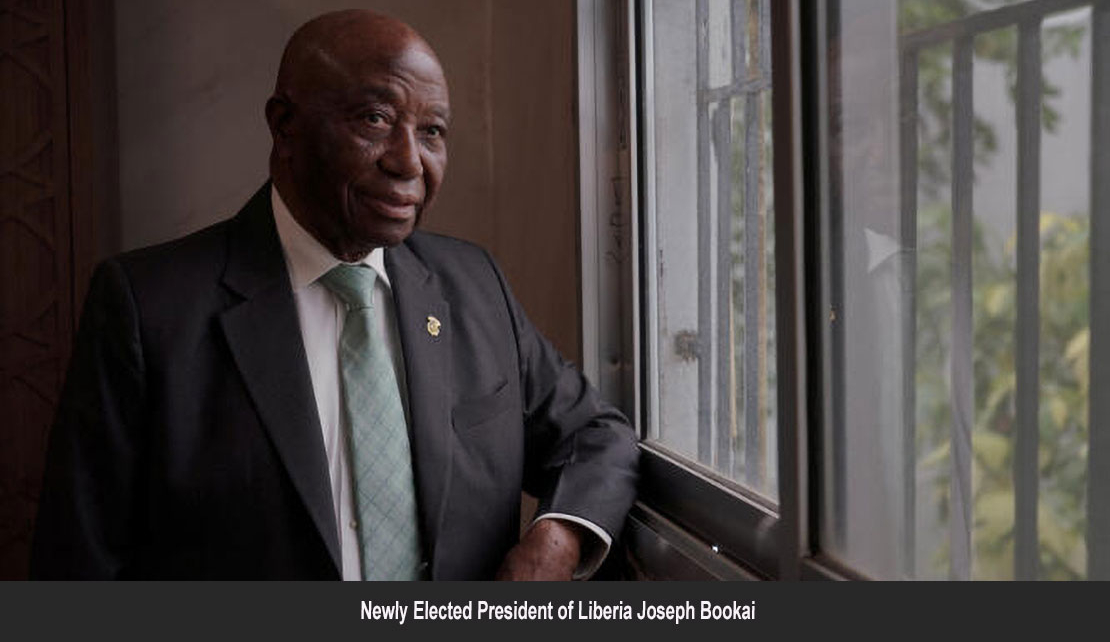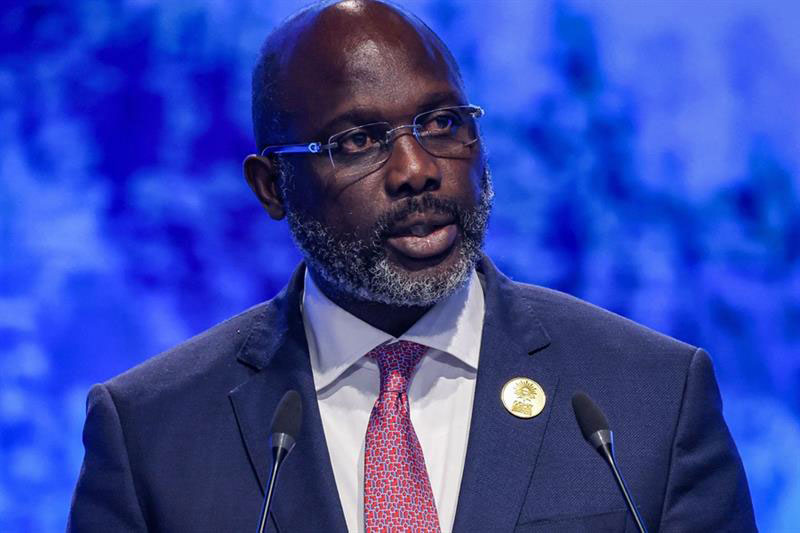LIBERIA | President George Weah concedes election defeat to Joseph Boakai

MONROVIA, Nov 22 - Joseph Boakai has become Liberia’s new president after his rival and sitting President George Weah conceded a tight election to mark a peaceful transfer of power in a region that has recently seen many military coups.
The country’s elections commission said on Friday that the 78-year-old Boakai, a former vice president, has managed to secure a narrow victory with 50.9 percent of the vote to Weah’s 49.1 percent, with almost all the votes counted.
Boakai, 78, a former vice president who lost to Weah in the 2017 election, led with 50.9% of the vote over Weah's 49.1%, with nearly all the votes counted, the country's elections commission said on Friday.

“The Liberian people have spoken and we have heard their voice,” Weah said in an address to the nation.
“I urge you to follow my example and accept the result of the elections,” he said, adding that “our time will come again” in 2029 when Boakai’s six-year term in office ends.
The results mark a considerable shift compared with 2017 when former international football star Weah had succeeded in defeating Boakai comfortably by garnering 62 percent of the vote.
He had ridden a wave of public hope to the presidency, promising to combat poverty, develop the country’s ailing infrastructure and crackdown on injustice and corruption.
But voters grew disillusioned over time and the 57-year-old Weah was accused of failing to live up to his election promises to improve conditions in the West African nation.
Regardless of the results of Friday’s vote, the fact that the president conceded even before the final official tally was announced is significant as the region has seen eight military coups in the past three years, raising concerns about the fall of the democratic process.
Weah's concession paves the way for Liberia's second democratic transfer of power in over seven decades - the first was when Weah swept to power six years ago.
His comments stood out in West and Central Africa where there have been eight military coups in three years, eroding faith in democratic elections. When elections do go ahead in the region, accusations of fraud abound and results are frequently contested in court.
Instead, Boakai supporters in the capital Monrovia danced, shouted and honked car horns in the rain after the near-final results were announced.
"We have a job ahead of us to do and I'm excited that the citizens have given us approval," Boakai told Reuters shortly after the results were announced. "First and foremost, we want to have a message of peace and reconciliation."
Boakai, a softly spoken career politician, emerged neck-and-neck with Weah in the first round of voting in October but below the 50% needed to secure an outright victory, leading to Tuesday's run-off.
Liberia is struggling to recover from two civil wars that killed more than 250,000 people between 1989 and 2003, and from a 2013-16 Ebola epidemic that killed thousands.
Many felt that Weah did not follow through on promises to alleviate poverty and improve the country's crumbling infrastructure.
Arkoi Sarkor, 43, told Reuters she supported Boakai because she was not able to get a job during Weah's term.
"I am very hopeful because I know Boakai is... a man of principles and I know when he gets in here, he is going to bring changes," she said. "Some things that were not done, that were not correct, he will put it in place, I am hopeful of that."
Source: Al Jazeera and news agencies
